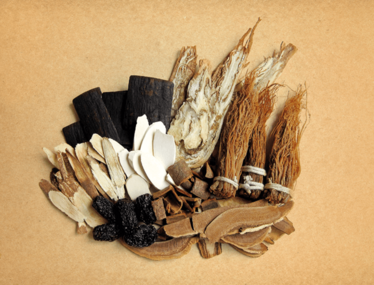Ancient Herbs with Modern Promise?
Traditional Chinese medicine is viewed with suspicion by mainstream healthcare, but a new collaboration aims to put ancient ingredients to the test
Do traditional Chinese medicines (TCM) actually work? Scientific proof is often sorely lacking. Nevertheless, even if a medical practice is unproven, the potential for truth is worth investigating. Enter a new collaboration between Elsevier and Beijing University of Chinese Medicine (BUCM), looking at whether TCM represents a rich source of material for further study by mainstream medicine (1).
There is some precedent for seemingly strange and ancient practices proving to be more effective than scientists might expect; for example, an Anglo-Saxon antibiotic recipe calls for bile from a cow’s gall bladder – and it’s surprisingly effective at killing bacteria (2). And TCM does have some links to modern medicine: “A great example is artemisinin, an active ingredient from the Chinese herb Qing Hao. It was traditionally used for treating fever, but later was developed as an anti-malarial drug,” says Jianping Liu, Professor and director of Evidence-Based Chinese Medicine at BUCM. “The Nobel Prize was awarded for this success to the Chinese scholar Tu Youyou in 2015. Artemisinin has saved millions of lives and is one of the most significant contributions of China and TCM to improving global health.”

With traditional remedies, it can be difficult to separate effective ingredients from superstitions, so the Elsevier/BUCM effort will aim to create a new taxonomy to consolidate and expand on existing TCM knowledge in Embase, Elsevier’s biomedical database. “BUCM, along with Elsevier, is not promoting TCM – but collaborating to share information and create taxonomies that could assist researchers, and lead to better health in the 21st century,” says Ivan Krstic, Senior Product Development Manager of Embase at Elsevier.
According to Krstic, some of the largest pharma companies are already interested in exploring how TCM can aid drug discovery and the development of new therapies. “Our collaboration aims to make existing research around TCM more discoverable, allowing drug researchers to seek knowledge from traditional clinical practices for modern biomedical sciences,” he adds.
- Elsevier, “Elsevier collaborates with Beijing University of Chinese Medicine to enable deeper research into traditional Chinese medicine”, (2018). Available at: bit.ly/ElsevierCollab. Accessed March 9, 2018.
- C Lee, “A Blast From Potions Past”, The Medicine Maker, 0715, 16–17 (2015). Available at: bit.ly/PotionsPast.
I have an extensive academic background in the life sciences, having studied forensic biology and human medical genetics in my time at Strathclyde and Glasgow Universities. My research, data presentation and bioinformatics skills plus my ‘wet lab’ experience have been a superb grounding for my role as a Deputy Editor at Texere Publishing. The job allows me to utilize my hard-learned academic skills and experience in my current position within an exciting and contemporary publishing company.



















